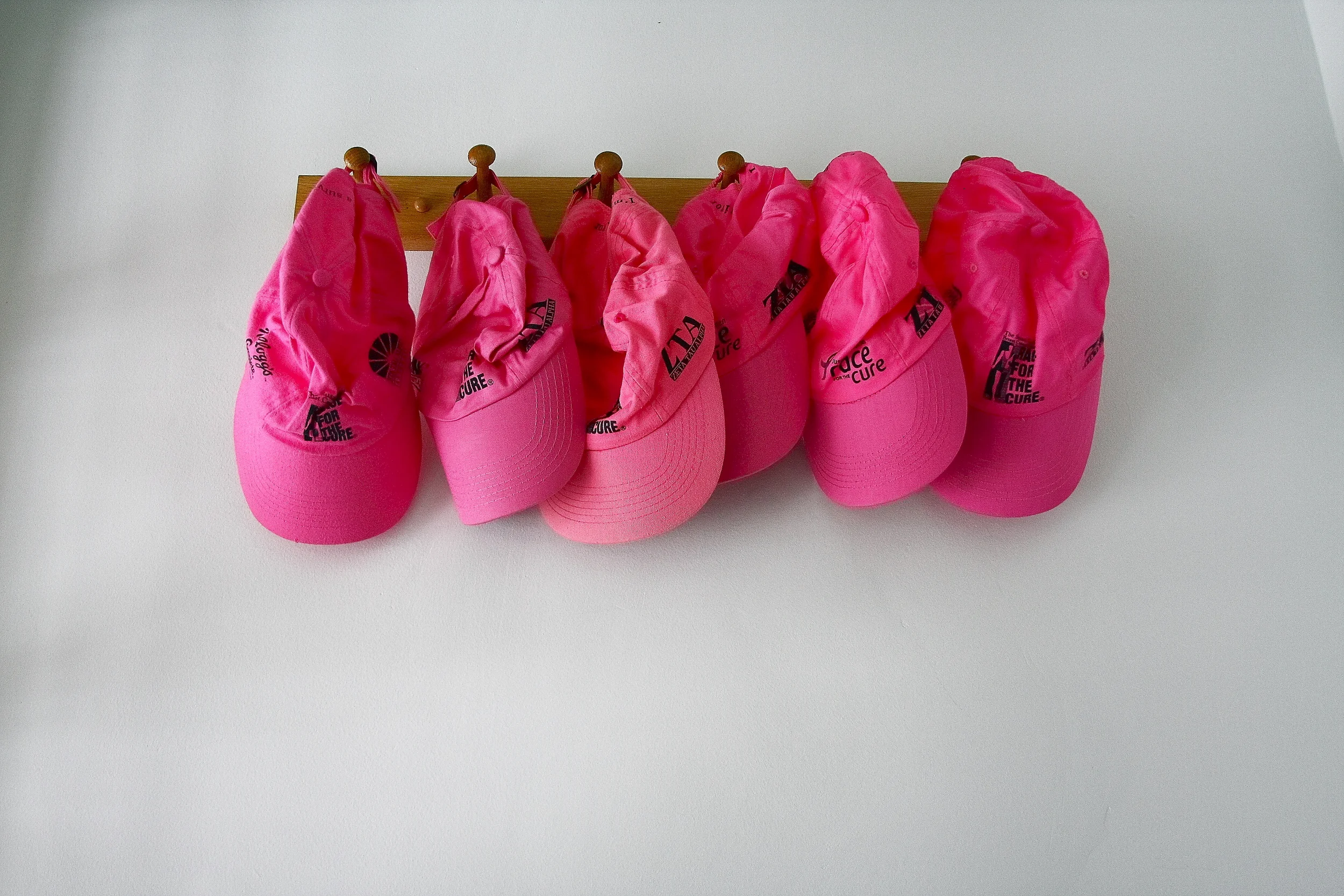For cancer survivors
How long ago did you get diagnosed with cancer?
In 1998 I was diagnosed with breast cancer. I was 41. It was a Stage II cancer with a lump the size of a grape.
How did they find it?
I found the lump doing a self exam. It didn’t show up on the mammogram. I’m a firm believer in women doing three things to protect themselves: Examine your breasts monthly, get a mammogram every year once you’re 40 (earlier if you have a family history of cancer) and have a doctor examine your breasts annually.
What kind of treatment did you get?
I did everything they told me to do: surgery, chemotherapy, radiation treatments and more surgery. And I’d do it all again if I had to. Life is worth fighting for.
What’s your prognosis?
I live fully and deeply every day I have. None of us come with an expiration date like cottage cheese or 2% milk. But cancer reminds you that you have one, so I live the hell out of every day and hope I get to grow old.
When can I start calling myself a survivor?
As soon as you hear the dreaded C word, you’re in the club. The date of diagnosis becomes a strange mark on the timeline of your life: B.C., before cancer. The rest of life comes after. That life can be richer than ever, no matter how long they tell you have or don’t have. Even if you get a recurrence down the road, you’re still a survivor for all the years, months or days since that first diagnosis.
What’s the worst part of having cancer?
It’s different for everyone. For me, losing my hair sucked. So did feeling like I had the flu for a year. And losing a few friends who couldn’t deal with it. But it was all worth it, every hair lost, ever meal lost, every hour lost to fatigue to have more days of life. Cancer treatment is do-able if you do it day by day, hour by hour, treatment by treatment.
What should I say to someone who has cancer?
First, don’t share any horror stories about people who didn’t make it. Trust me, those are not helpful. Right now there are about 10 million Americans alive who have had cancer. Cancer is not a death sentence. People live long lives with cancer.
What you say is, “I’m here for you.” And mean it. Don’t go missing in action when their hair falls out or they’re too tired to go out and have fun. When it comes to cancer, there are no right words. Sometimes no words are best. Your presence alone matters more than anything you can say. Here are a few cancers "don'ts:" You can find more tips in Be the Miracle, in Lesson 29.
Don’t be afraid of the person. Cancer isn’t contagious.
Don't flee. Cancer brings out the best and the worst in people. Some friends will go AWOL. Don't be that friend. Write, visit, call. The burden of the friendship is on the well person. Stay involved for the long haul. The longer the treatment, the lonelier it gets.
Don't offer medical advice or discourage the person from pursuing the course of treatment he or she has chosen.
Don't overreact and jump from diagnosis to death. The person in front of you is very much alive no matter what the prognosis.
Don't blame the person for having cancer.
Don't point out anything that isn't flattering, like how big someone's ears look when they're bald from chemo. Make sure your words are necessary, helpful or kind.
Don't ask personal questions that only doctors and spouses are allowed to ask.
Don't say you know how the person feels. You don't.
Now for the dos:
Stay in touch by phone, text messages, e-mails and cards. Allow the person to respond as energy allows.
Send movies, books, gift baskets, flowers and meals in containers the person doesn't have to return.
Instead of asking, "What can I do?" offer a few specifics. When someone throws out choices, it makes it easier to grab one when your brain is fuzzy from chemo. Ask: Can I pick up something to eat or drink? Drive you to the library? Take you to a movie? Get you a milkshake?
Ask the person's main caretaker, too: Can I run an errand? Watch the kids? Bring over a meal? Hire a maid service to help out?
When in doubt, just ask, "What can I do to make you more comfortable?" Or better yet, think of three things that might work and offer those as suggestions.
Take nothing personal if the person gets irritated, tense, sad or depressed and doesn't always call back. Keep offering. Keep the friendship going.
Some people never mention they have cancer. Why do you write and talk about being a survivor?
Each person has the right to keep it private or shout it from the rooftops. I think it’s important to talk about surviving. I’ve heard it said, “It’s an obligation of the cured.”
Lance Armstrong put it this way: "Once you figure out you're going to live, you have to decide how to, and that's not an uncomplicated matter. You ask yourself: Now that I know I'm not going to die, what will I do? What's the highest and best use of my self?" Then he climbed back on the bike. I don’t ride a bike, so I grabbed my pen and kept writing.
So how are you doing?
My prognosis is the same as anyone who's ever had cancer and the same as anyone who has never had cancer: We get to live all the days of our life. It's up to us, not cancer.
Where can I get information on how to help others with cancer?
Go to the American Cancer Society at www.cancer.org (or call 1-800-227-2345).
The National Cancer Institute offers many tools and tips at www.cancer.gov
